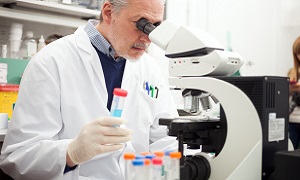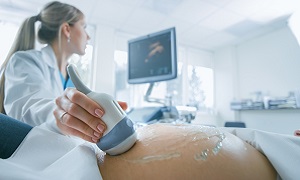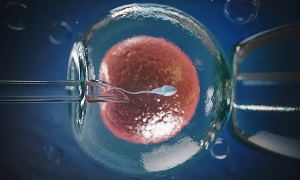Best Doctors in India for Infertility Treatment
- IVF Specialist & Gynaecologist, Kolkata, India
- Over 10 years’ experience
Profile Highlights:
- Dr. Akanksha Jangid is a Consultant of Gynecology and Obstetrics in Kolkata currently associated with Indira IVF. The center is a highly specialized unit equipped with the latest technology in Assisted reproductive technology together with state-of-the-art infrastructure and laboratories.
- She is trained in infertility treatment and provides services for IVF, IUI, ICSI, and fertility tests.
- IVF Specialist & Gynaecologist, New Delhi, India
- Over 15 years’ experience
Profile Highlights:
- Dr. Arvind Vaid is a well-known Gynecologist and Obstetrician in Delhi specializing in IVF and infertility treatment.
- He has over a decade of experience in the treatment of infertility and has helped a number of patients in having a child through ART (Assisted Reproductive Technology).
- Dr. Arvind Vaid is trained in various infertility procedures including IVF, ICSI, IUI, and assisted laser hatching.
- IVF Specialist & Gynaecologist, Hyderabad, India
- Over 15 years’ experience
Profile Highlights:
- Dr. Chandana Lakkireddi is renowned infertility and IVF specialist in Hyderabad with expertise in all kinds of assisted reproductive techniques and the management of infertility issues in both males and females.
- She has an extensive experience of 15+ years and finds interest in reproductive endocrinology, management of PCOS, implantation failure, recurrent failed cycles of IVF, miscarriage, endometriosis, and adenomyosis.
- IVF Specialist & Gynaecologist, Chennai, India
- Over 10 years’ experience
Profile Highlights:
- Dr. Erika Patel is a Consultant of Gynecology & Obstetrics in Chennai with experience in infertility treatment and ART.
- With several years of experience in the management of infertility and training in IVF, Dr. Patel works with the goal of making IVF and assisted reproduction highly successful in India.
- She has helped several couples in conceiving a baby without compromising on the quality and by following strict ethical conduct while maintaining complete transparency during the entire process.
- IVF Specialist & Gynaecologist, Chennai, India
- Over 15 years’ experience
Profile Highlights:
- Dr. Aruna Ashok is a well-known gynecologist and obstetrician with experience in the treatment and management of all types of gynecological issues and disorders.
- Along with that, she is an experienced and skilled infertility specialist with training in various types of assisted reproductive techniques including IVF, IUI, ICI, and IMSI. She performs infertility surgeries and donor insemination surrogacy among other several procedures.
- She has delivered talks and presented papers at national levels on infertility, IVF, and the advancements being made in ART.
Best Hospitals in India for Infertility Treatment
Infertility
Infertility is a condition when the female partner is unable to get pregnant, despite multiple attempts. In the US alone, around ten to fifteen percent of couples are known to be infertile.
Infertility may be due to an issue with either you or your partner, or it could also be due to a combination of factors that are preventing pregnancy. However, there are several safe as well as effective therapies that are able to improve your or your partner’s chances of getting pregnant.
Symptoms
Pregnancy not occurring is the main symptom of infertility. Although there are generally no other obvious symptoms, a woman suffering from this condition might have irregular or absent menstrual periods. Men suffering from infertility might also show a few signs such as hormonal problems, changes in hair growth as well as sexual function.
In most cases, couples are able to conceive without any treatment.
For women, you should consider seeing a doctor about infertility issues if you have been unsuccessfully trying to get pregnant for over a year. You might consider seeing your doctor earlier if you:
- Are age 35 or older and have been trying to conceive for six months or longer
- Are over the age of 40
- Have very painful periods
- Have known fertility problems
- Have irregular or absent periods
- Have been diagnosed with conditions such as endometriosis or pelvic inflammatory disease
- Have undergone treatment for cancer
- Have had multiple miscarriages
For men, you should consider seeing a doctor if you have or experience:
- A low sperm count or any other problems with sperm
- A history of testicular, prostate, or sexual problems
- Other members of your family having infertility problems
- Having undergone treatment for cancer
- Small testicles or swelling in your scrotum
Causes of Male Infertility
Generally speaking, in men, infertility is related to the following:
- Effective production of sperm
- Sperm count, or the number of sperm
- Sperm shape
- Movement of the sperm
There are a variety of risk factors as well, related to infertility in men, which include:
- Older age
- Obesity
- Smoking Cigarettes
- Excessive use of alcohol
- Exposure to toxins such as heavy metals, pesticides, and herbicides
Few medical conditions also exist, that can cause male infertility. They include:
- Retrograde ejaculation
- Varicocele, or the veins around your testicles swelling
- Testicles that haven’t descended into your scrotum
- Having antibodies that attack your sperm, eventually destroying them
- A hormonal imbalance, such as low production of testosterone
Various medications and drugs are also there, which lead to male fertility. They include:
- Chemotherapy or radiation therapy, which are cancer treatments
- Medication which is used for rheumatoid arthritis (RA) or ulcerative colitis (UC)
- Recreational drugs like marijuana and cocaine
- Anabolic steroids, which can help in improved athletic performance or hormonal issues like delayed puberty
- Calcium channel blockers used for high blood pressure
- Tricyclic antidepressants
Causes of Female Infertility
Various factors can lead to female infertility, which can affect or interfere with the following biological processes:
- Ovulation, which occurs when the mature egg is released from the ovary
- Fertilization, which occurs when the sperm meets the egg in the fallopian tube after it has traveled through the cervix and uterus
- Implantation, which occurs after a fertilized egg attaches to the lining of the uterus where it is then able to grow as well as develop into a baby
Some of the risk factors for female infertility include: - Increasing age
- Excessive use of alcohol
- Smoking cigarettes
- Being obese, overweight, or significantly underweight
- Sexually transmitted infections
There are also a variety of medical conditions which can lead to infertility, such as:
- Ovulation disorders, which may be caused by hormonal imbalances or polycystic ovary syndrome (PCOS), or pelvic inflammatory disease
- Endometriosis
- Uterine fibroids
- Premature ovarian failure
- Scarring caused by a previous surgery
There are also certain medications as well as drugs which can affect female infertility such as:
- Chemotherapy or radiation therapy
- Antipsychotic medications
- Using high-dosage non-steroidal anti-inflammatory drugs for long-term
- Recreational drugs like cocaine and marijuana
Diagnosis
Before testing for infertility, your doctor or healthcare provider is going to work to understand your sexual habits, and might also make recommendations to help to improve chances of pregnancy. In some infertile couples, sometimes, infertility is unexplained.
It is important to note that evaluation for infertility can be expensive, and sometimes can involve procedures that are uncomfortable. There is also no guarantee that after all the testing and treatment, pregnancy is going to occur.
Tests for men
In order for a man to be fertile, it is important for the testicles to produce healthy sperm, and that the sperm is ejaculated effectively into the vagina, and then travel to the egg. Tests for male infertility generally attempt to determine if any of these processes are impaired.
Some of the tests can include semen analysis, genetic testing, hormone testing, testicular biopsy, imaging as well as any other testing.
Tests for women
For women, fertility relies on the ovaries releasing eggs that are healthy. The reproductive tract must allow the egg to pass into the fallopian tubes, and then join with the sperm, so that the fertilization can take place. Your doctor can recommend a general physical exam, as well as few other tests such as ovulation testing, ovarian reserve testing, imaging tests, etc.
Treatments
If despite multiple attempts, a couple is unable to achieve pregnancy, then treatment is an option. The type of treatment that your doctor might recommend might depend on a variety of factors, such as:
- The cause of infertility, if known
- The overall health of you as well as your partner
- How long you’ve been trying to conceive
- Age
For Men
Male infertility is treatable in various ways, depending on the cause. Generally, surgery, medication and assisted reproductive technology are the main treatment options.
Medications
Surgery
Surgery helps to fix obstructions that prevent sperm from being present in the ejaculation. It might also help in correcting medical conditions such as varicocele. Sometimes, sperm is retrieved from the testicles directly, after which it is used in treatments with assisted reproductive technology.
Assisted reproductive technology
Assisted reproductive technology generally refers to treatments in which eggs and sperm and handled outside the body. It includes treatments such as in vitro fertilization (IVF), sperm injection, or intracytoplasmic sperm.
For Women
Although surgery can be used to treat female infertility as well, it has become quite rare now due to advancements in other fertility treatments. Surgery can improve fertility by:
- Correcting an abnormally shaped uterus
- Removing fibroids
- Unblocking fallopian tubes
Reproductive assistance
Reproductive assistance involves methods such as intrauterine insemination and assisted reproductive technology. Intrauterine insemination involves injecting millions of sperm into a woman’s uterus near the time of ovulation.
IVF
Medications
Prevention
Having regular intercourse several times around the ovulation time can increase the chances of pregnancy. It is also noteworthy that all types of infertility are not preventable.
For men, it is important to avoid using too much tobacco, alcohol, or any such drugs, as well as any medications that can impact fertility. It Is also advisable to avoid high temperatures in hot tubs and hot baths, as well as avoid exposure to any kind of industrial or environmental toxins. Regular exercise can also help in improving sperm quality.
For women, it is important to quit smoking, reduce or stop the intake of alcohol, and also limit caffeine. Regular exercise is also important and can prove to be extremely beneficial.












